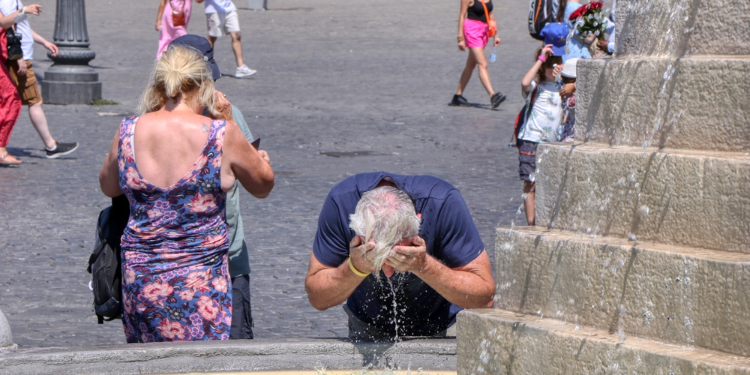
Being an expat, exploring new horizons and adjusting to a new environment can be both exciting and stimulating. However, when temperatures reach extreme levels, the heat can considerably challenge our resilience and adaptability. Whether you are a recently settled expat in a region with scorching summers or planning to move to a country vulnerable to heat waves, here are some tips to help you overcome such situations.
Heatwaves can affect not only your comfort but also your health and overall well-being. In recent weeks, many countries in the northern hemisphere, such as Canada, the United States, Greece, Italy, France, Germany, and Spain, have been subjected to heat waves, significantly impacting the quality of life for their residents. So how can you survive as an expat in one of these countries, or if you plan to settle there soon?
Psychological preparation before departure and gradual adaptation
It may sound too simple, but knowing the local climate before moving to a new country can greatly help. By learning about the climate and expected temperatures, you'll be better equipped to handle and find tricks to survive the intense heat. Once in the country, try to adapt gradually by spending more time outdoors progressively to allow your body to acclimate to the conditions, if possible.
Stay hydrated
It cannot be emphasized enough: staying hydrated is crucial when it's hot! Drink water regularly throughout the day, even if you don't necessarily feel thirsty.
Avoid going out and doing activities during the hottest hours
As an expat, you're probably tempted to go out as much as possible and explore your new country, but this can be quite challenging in times of heatwaves. If possible, limit your outdoor activities during the hottest hours of the day, usually between noon and 4 p.m., when the sunshine is strongest. Stay indoors or seek shaded areas if you need to go out.
Choose your clothing carefully
Or rather, your clothing fabrics. Indeed, this choice is crucial for surviving extreme heat. Avoid synthetic materials and dark colors as much as possible, and opt for cotton or linen, which allow your skin to breathe and help you feel cooler. Your best options are lightweight and loose-fitting clothing, avoiding thick and tight fabrics that retain heat.
Cool yourself down and use suitable devices
Use fans, air conditioners, or misters to cool down indoors (although they may not be the most eco-friendly solutions, they are very effective). If you don't have access to such devices, take regular cool showers or place damp towels on your body to refresh yourself. Another good idea is to place damp clothing in front of a fan or near a window.
Protect your home and avoid unnecessary heat sources
It's not the time to bake lasagna or prepare a fondue. Not only will you probably not feel like eating hot meals, but doing so will also generate unnecessary heat. So avoid using the oven and keep your shutters closed during the day, especially on sun-facing windows. If possible, open everything up at night to let in the cool night air.
Pay attention to your diet
As mentioned above, you probably won't feel like cooking hot dishes. You are advised to eat fresh fruits and vegetables, like salads, especially in the evening, to stay hydrated. Avoid anything that can dehydrate you, such as alcohol or coffee.
Avoid intense physical activities
It's best to avoid intense physical exercise during the heat waves to prevent excessive sweating and rapid dehydration. If you absolutely want to exercise, try to do it early in the morning or in the late evening when temperatures are cooler.
Look for cool places
If your home becomes unbearable during the day, identify nearby air-conditioned or cool places, such as shopping malls, libraries, or cinemas, where you can relax during the heat waves. Also, consider going to the swimming pool or to the beach to refresh yourself, but make sure you aren't directly exposed to sunlight for too long, even while in the water!
Identify the signs of heat strokes and protect yourself
Another crucial point is recognizing heatstroke. It occurs when our bodies become too hot. When it happens, our body temperature rises dangerously, causing severe symptoms such as:
- Headaches
- Nausea or vomiting
- Dizziness or fainting
- Rapid breathing or heartbeat
- Extreme thirst
- Confusion
If you are an expat with children, keep an eye on their behavior, as signs won't deceive you. If they have dilated pupils, are more irritable, cry excessively, or are overly excited, they might be suffering from heatstroke. Be aware of the symptoms; if you experience them, seek immediate help, as it is considered a medical emergency.
Following these simple yet effective tips will help you better survive heat waves in your new country. Be prepared, stay hydrated, avoid the hottest hours, dress smartly, look for cool places, and be attentive to signs of heatstroke. Take care of yourself so you can fully enjoy your expat experience.



















